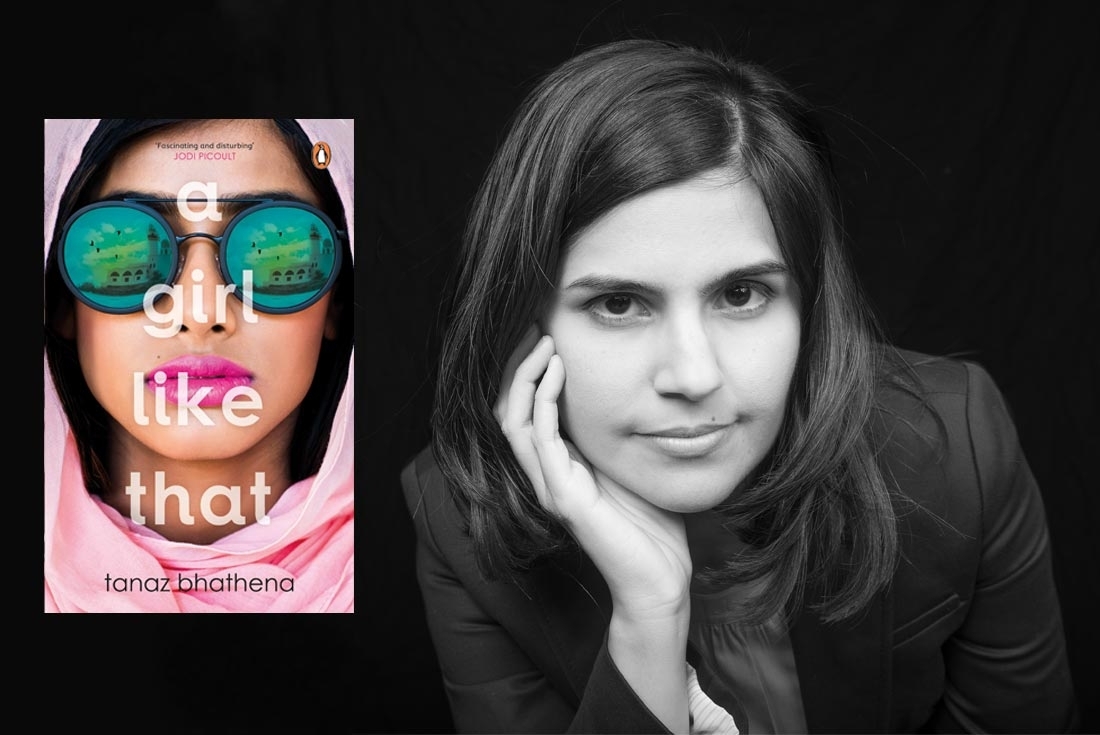

Sixteen-year-old Zarin Wadia is many things: a bright and vivacious student, an orphan, a risk-taker. She's also the kind of girl that parents warn their kids to stay away from: a troublemaker, whose many romances are the subject of endless gossip at school. You don't want to get involved with a girl like that, they say. So how is it that eighteen-year-old Porus Dumasia has only ever had eyes for her? And how did Zarin and Porus end up dead in a car together, crashed on the side of a highway in Jeddah, Saudi Arabia? When the religious police arrive on the scene, everything everyone thought they knew about Zarin is questioned. And as her story is pieced together, told through multiple perspectives, it becomes clear that she was far more than just a girl like that.
We connected with Tanaz to learn more about her and her debut book.
Can you tell me a little about your background – where were you born, where did you grow up etc and when and how did your romance with the written word begin?
I was born in Mumbai. My parents and I moved to Riyadh, Saudi Arabia, when I was about a year old and I grew up over there and in Jeddah for about fifteen years. When I turned sixteen, we immigrated to Canada and this is where I live now. I loved reading as a child and, in turn, fell in love with writing when I was about eight years old. By the time I was thirteen, I knew I wanted to write books.
India, Saudi and now Canada – how has living in different countries and being exposed to different cultures shaped the writer you are today?
It’s been a privilege to have lived in these different countries and be exposed to their cultures and lifestyles. As a writer, I often look for ways to connect my readers with my characters, and one way I’ve been able to do this by not only seeing the differences between different cultures, but also by bridging the gap between them. I want a reader to be able to read my book and think: Yes, I relate to this character even though they live on another continent. Or: This could have happened here, too.
“'As an artist, I like to remain hopeful that even though change is slow, it will happen and one day I’ll be able to write a different sort of story.'”
You have written umpteen short stories how was the transition from short to novel length – did you face any challenge or was the shift smooth?
It was difficult! As a short story writer, I was used to brevity and being concise. While writing a novel, I had to do exactly the opposite and also expand the story in a meaningful way. I remember writing a draft of the book, which was around 50,000 words and thinking: That’s not long enough!
What inspired your debut novel – a girl like that?
I wanted to write a book set in the Saudi Arabia where I grew up—the world outside royal palaces and gated compounds—with a focus on middle-class Indian expats who were also teenagers. a girl like that began as a short story collection and Zarin’s story was the one that kicked it off.
You touch upon various important and intense subjects in the novel can you tell me what kind of research went into it?
I did a lot of reading. I watched a lot of videos. I compared articles in newspapers like Arab News and Saudi Gazette to candid first-person blogs by people who still lived in Saudi Arabia and reports by organizations like Human Rights Watch and Amnesty International. You can live in a country for over a decade and find out that there is still so much that you didn’t know about it, so many things that can surprise you.
How did you create Zarin’s character and what intrigued you to keep writing and developing her?
Zarin’s character came to me from the very beginning—from the moment I thought I wanted to write about a Parsi girl. She was different from me in personality, she was funny and sarcastic, she had an incredibly strong voice. I’ve written other pieces since then and know how rare it is to stumble upon a voice like that, the sort that says: “Wake up. Listen. I have a story to tell.”
As a woman who has experienced discrimination and also seen a little change – what are your artistic concerns?
With a girl like that, I wrote about some of the things I saw and experienced in the world. It is by no means a single story, but it is one that happens far too often for my liking. As an artist, though, I like to remain hopeful that even though change is slow, it will happen and one day I’ll be able to write a different sort of story.
Lastly what would you like readers to take away from a girl like that?
Never be afraid of asking difficult questions. And never be afraid of saying “no” if you don’t like the answer. Girls like Zarin inspire me because they stick to their truths and who they are even when the world tries to define them in countless ways.
Text Platform Desk